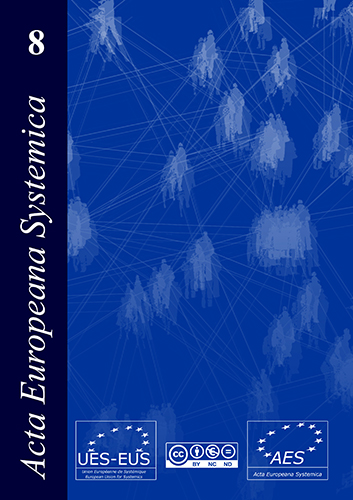Crises and Systems Thinking
DOI:
https://doi.org/10.14428/aes.v8i1.56283Keywords:
crisis, systems thinking, linguistic modeling, uncertaintiesAbstract
Tragedy, disaster or disorder precedes a situation labelled ‘crisis’, if it occurs. Tragedy, disaster or disorder is potentially present in all scenarios which function according to expectations or normally, they are dormant in any part of the world. A structural or linguistic model of a scenario reveals its constituents i.e. objects or agents, their properties and qualified interactions as seen by an investigator. Thus, objects and interactions are open to unravelling those features which are considered prone to tragedy or vulnerable to disasters or possibly incurring disorder, each to a varying degree. Therefore, new structures can be foreseen, planned, designed and introduced into a scenario to reduce chances of disasters occurring and possibly followed by crisis situations. A linguistic, operational model also allows the analysis and simulation of scenarios when real or imaginary crisis has occurred and crisis management has been introduced with effectiveness measured by ‘certainty factors’, for example. Currently workers in the field of crisis appear to concentrate on its nature and management and express their ideas in a descriptive manner. In this paper this is supplemented by showing how background scenarios can be operationally modelled in which potential tragedies, disasters or disorders are embedded. Crisis management is seen as a kind of problem solving and as such is amenable to being engineered by the method introduced here.
Downloads
Published
How to Cite
Issue
Section
License




